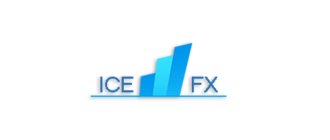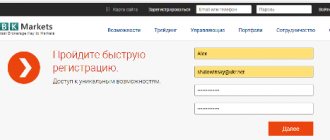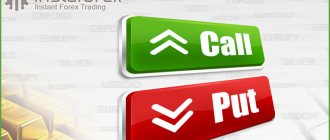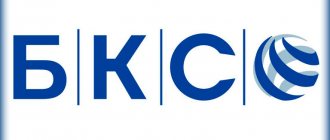Traders choose foreign companies for unimpeded access to the markets of their respective countries. There are other advantages, for example, deposit insurance for a substantial amount. Many foreign brokers accept clients from countries all over the world without any problems, which means that Russians and residents of other post-Soviet countries can open accounts and trade with them.
Below we describe the best foreign brokers for Russians and not only, and also indicate the features of working directly with foreign companies. From this article you will learn:
- Types of foreign brokers
- TOP 6 best foreign brokers
- Features of working with foreign brokers
- Conclusion
Requirements for knowledge and skills
The Directive sets minimum professional requirements, but EU member states may introduce additional rules. Member States must determine what is considered a sufficient level of knowledge and ability for insurance and reinsurance intermediaries. Insurance supervisory authorities are entrusted with the functions of monitoring the professional training and advanced training of intermediaries.
They approve training course programs, qualification requirements, examination procedures, etc. The professional level of brokers - individuals and heads of brokerage organizations - is most strictly controlled; The least requirements apply to agents working part-time.
So, foreign/foreign brokers who remotely open accounts for Russians are as follows:
- Interactive Brokers (there is a website in Russian. One of the best and largest brokers with a long history. Commission for inactivity is $10 per month.)
- Captrader (min. deposit - 2,000 EUR or USD, no commission for inactivity!)
- Lightspeed (min. deposit - $25,000)
- Place Trade (min. deposit - $5,000)
- Just2Trade (min. deposit - $2,500) - American “daughter” of Finam-a
- Venom by Cobra Trading (min. deposit - $5,000)
- Saxobank (min. deposit - $10,000)
- KIT-Finance Europe (min. deposit - $5,000)
- FFINRU Investments Ltd (min. deposit - $500)
- Exante (min. deposit - €10,000)
- TradeStation Global (min. deposit - $1,000)
On topic: The best and most reliable American online brokers. Rating.
Each broker must confirm the size of the deposit to open an account and the commission. The deposit can range from several hundred to several thousand dollars. Fees can also vary significantly.
For example, Interactive Brokers had it at $10,000, but in 2018 it was canceled and now it is zero. But, they have a fee for inactivity/inactivity. Read more here: What you need to know about Interactive Brokers.
A valuable PDF guide to Interactive Brokers with answers to the main questions: ✔ how to open an account, ✔ how to fund your account and withdraw money, ✔ what fees are charged, ✔ which tariff is right for you, ✔ how to pay taxes, ✔ and other important questions. Download the Interactive Brokers PDF Guide for free here .
Registration validity requirements
Member States may establish several registers for insurance and reinsurance intermediaries, but in this case they must provide ready access to the information contained in these registers and establish criteria for classifying intermediaries in them.
Before registering an intermediary, the authorized body must make sure that all the conditions of professional requirements are met: he has the required level of knowledge, he has a good reputation, he has insured his professional liability and the safety of funds received from clients or insurance companies.
The supervisor also ensures that insurance undertakings only use the insurance and reinsurance intermediary services of registered insurance and reinsurance intermediaries and persons who sell insurance as an addition to the product or service they supply. Otherwise, the regulator has the right to apply appropriate sanctions.
Regarding the tax regime, in the EU the financial sector is exempt from VAT, including insurers, reinsurers and intermediaries associated with the insurance sector - insurance brokers and agents.
The EU is currently preparing a draft amendment to Directive N 2002/92/EC - a process known as IMD II, which began in 2009 in the wake of the global financial crisis. The main direction of the reform will be to expand the amount of information provided by the insurance intermediary to the policyholder. Character and sum are discussed
the nature of the remuneration received by the first person upon concluding an insurance contract, the form of providing such information (mandatory/upon request) and the process of resolving conflicts between the parties to the insurance intermediation contract.
Which broker is better - Russian or foreign? - part 2
How are Russian and foreign brokers similar? How are they different from each other? Which broker and in what situation is suitable for a particular investor?
In a previous article on this topic, we compared the minimum amounts to open an account, the commission structures that investors have to pay, as well as the features of trading and access to stock exchanges.
Let's continue comparing Russian and foreign brokers.
— Brokerage account insurance
Perhaps this is one of those parameters that clearly distinguishes foreign brokers from Russian ones.
Unfortunately, in Russia at the moment there is no insurance in case of bankruptcy or fraud on the part of a broker, similar to the type of insurance of money in accounts and deposits in Russian banks from the DIA.
In turn, such insurance exists abroad. It is usually provided by government or government-related organizations or associations. Insurance does not protect against losses in a brokerage account due to declines in asset values. However, it will provide protection if problems arise with the broker, due to which he will not be able to continue to provide his services, or if the broker, on his part, commits illegal actions with clients’ assets. Such insurance, as a rule, applies to all clients of the broker - both local and foreign. Therefore, for example, a Russian investor may well count on insurance from an American broker with whom he has an account, if this broker is a member of the relevant organization that provides such insurance.
At the same time, it is not at all necessary that in practice it will come to insurance payments. If the broker has problems, the investor will first try to return his securities and funds that were in the account. The classic principle that the assets of the broker himself should be kept separately from the assets of his clients applies both in Russia and abroad. Therefore, in a standard situation, if the broker does not commit outright illegal actions, nothing should happen in terms of safety of clients’ assets. If a broker goes bankrupt for some reason, the depository (i.e., the organization that stores the assets) will transfer all the assets of its clients to another broker, through which investors can continue to invest.
However, if a broker or a broker’s depository nevertheless commits some fraudulent actions, then in Russia the assets will have to be returned to investors through the courts. Unfortunately, in Russian practice there are examples of bankruptcies of not very large brokers, in which investors lost their assets and for many years have been trying to get at least something back.
In turn, abroad, if an investor does not have access to all of his assets after problems arise with the broker, it will be possible to take advantage of insurance payments even before any legal proceedings.
Therefore, brokerage account insurance in such situations acts as an additional layer of protection for the investor. In Russia, due to the lack of insurance for brokerage accounts, when choosing a broker, it is better to focus on the largest brokerage companies that have a large number of clients and, possibly, connections with large ones, incl. state banks. Such Russian brokers, in my opinion, will be the most preferable option in terms of investment reliability.
— Opening an account and communicating with a broker
With many Russian brokers, an account can now be opened remotely, especially if the investor already has an account with a bank that is part of the same group of companies as the broker. In this case, the investor will not need any additional documents other than the data from the passport.
To open an account, you can use the website or application of a broker or related bank. If the investor has not previously interacted with either the bank or the relevant broker, in most cases you can try to open an account using a confirmed entry on the State Services website.
However, some brokers (especially those associated with state-owned banks) will periodically have to contact the broker or bank office to resolve a number of issues.
For foreign brokers, initially all interaction with the broker and account opening occurs remotely. In this case, the investor will be required to fill out a questionnaire when opening an account, provide a document confirming his identity (Russian or foreign passport), and confirm his home address (certificate from the bank, utility bill or other document indicating the address). In most cases, all this is done by the investor himself through a form on the broker’s website.
Not all foreign brokers accept documents in Russian, so in some situations, to open an account you will only need a foreign passport and a certificate of address confirmation in English, which, for example, can be obtained from many banks. Or you will have to send notarized translations of documents in Russian.
After opening an account, the investor may not have any paper documents from the broker signed and stamped - and this is standard practice abroad. However, you can request electronic copies of such documents.
In addition, not all brokers have Russian-language support. Therefore, sometimes an investor will have to be prepared to communicate with a broker, for example, in English via email or online chat on the website. As a last resort, you can use online translators for this. In general, this is not very difficult, but it can cause some inconvenience.
On the other hand, among foreign brokers, as a rule, there is no practice of calling clients to offer “excellent” investment ideas (although, as a rule, they are excellent for the broker, not for the client), which some Russian brokers are guilty of.
Thus, when working with a foreign broker, the investor will need to take more actions than when investing through a Russian broker.
— Joint accounts
Another parameter that clearly distinguishes foreign brokers from Russian ones is the possibility of opening joint accounts.
In Russian practice, in fact, it is not yet possible to open joint bank or brokerage accounts in the same format as is done abroad - when the account has two equal owners, each of whom can dispose of the assets in this account.
This may be important to some investors. On the other hand, it cannot be said that a joint account is some kind of vital function for every investor.
A joint brokerage account goes well with a joint bank account (which can also only be opened in foreign banks for now). In such a situation, for example, you can easily withdraw funds from a joint brokerage account to the same bank account - this will not raise any questions for the broker. If you try to withdraw funds from a joint brokerage account to the individual bank account of one of the owners, this will most likely raise questions from the broker and require additional clarification. In addition, some form of confirmation may be required from the second account owner that he is not opposed to the withdrawal of funds to the individual bank account of the other owner.
Also, as explained in the support of the American broker Interactive Brokers, a joint brokerage account does not automatically give the right to inherit assets in the event that something happens to the second owner. If another owner wants to formalize full access to all assets in the account, he will still have to go through the probate process and may face foreign inheritance taxes.
In addition, the procedure for declaring and paying taxes in Russia on joint accounts is not entirely clear. Here we have to hope that a particular tax inspectorate will be satisfied with the option in which, having presented the relevant explanations to the inspectorate, only one of the account holders will file a declaration and pay the tax.
If it is important for an investor that someone close to him also has access to an account with a foreign broker, he can create an additional user within an individual account who will also be able to carry out transactions on the account. However, the account will remain individual, with one owner in whose name the account was opened, and the withdrawal of funds, as well as the declaration and payment of taxes on such an account will be standard.
In my practice, most of the investors and clients with whom I worked opened individual accounts with a foreign broker. However, some investors purposefully use joint accounts, although for Russian investors they have not only advantages, but also disadvantages.
— Requirements of currency legislation
Similar requirements exist only for foreign brokerage accounts. They do not apply to accounts with Russian brokers.
Let me remind you that these requirements boil down to three points:
1) notify the Federal Tax Service of Russia about the opening/closing/change of account details;
2) annually submit a cash flow report to the Federal Tax Service;
3) carry out only permitted transactions on the account (currently any transactions are allowed on accounts with foreign brokers, there are no restrictions).
All this, again, will require more actions and preparation of more documents on the part of the investor in case of investing through a foreign broker.
You can read more about the requirements of currency legislation for foreign accounts here:
— Taxation
Russian brokers will in most cases act as tax agents. This means that the investor will not need to independently calculate and pay personal income tax when investing. The broker himself will do all this for the investor.
At the same time, the Russian broker will withhold personal income tax on profits from the sale of securities in two cases. The first case is if the investor withdraws funds from the brokerage account during the year. If the withdrawn amount is less than or equal to the amount of tax calculated at this time, then when withdrawing funds from the investor, personal income tax will be withheld in the amount of 13% of the withdrawn amount.
If the amount withdrawn from the account is greater than the amount of personal income tax from all transactions of the investor, then the entire amount of tax calculated at the moment will be withheld from the investor upon withdrawal.
The second case when a Russian broker will withhold personal income tax from an investor is at the end of the year. As a rule, in January, Russian brokers send letters to their clients with personal income tax calculations based on the results of the past year and a request to provide the necessary amount in the account to write off the tax, if such a tax has arisen based on the results of all calculations.
You can read more about all tax withholding situations here: https://sergeynaumov.com/when-russian-and-foreign-brokers-withhold-taxes/
However, there is one exception in which the investor will have to independently file a tax return, calculate and pay personal income tax, even if he invested through a Russian broker. These are dividends from foreign securities - for example, when investing in shares of foreign companies that are traded on Russian stock exchanges. In such a situation, the investor will have to report the dividends received to the tax office, because a Russian broker will not be a tax agent.
You can read more about how to do this here:
In addition, when investing in the Russian market, you can apply various tax deductions (deductions for IIS and a three-year deduction for the period of ownership), which will allow you to return, reduce, or not pay personal income tax at all on profits from transactions with securities.
In turn, when investing through a foreign broker, deductions for IIS and a three-year deduction for the holding period will not apply to those securities that are not traded on Russian stock exchanges. True, from the beginning of 2021, it may be possible to apply the benefit from Article 284.2 of the Tax Code to such securities (for more details -). However, there is no absolute certainty about this possibility yet.
Therefore, for now, when investing through an account with a foreign broker, an investor should proceed from the fact that tax deductions available on the Russian market, for the most part, cannot be used abroad. In addition, the investor will have to completely independently resolve all tax issues - file a tax return, calculate and pay personal income tax when investing. The foreign broker will not act as a tax agent.
At the same time, as a rule, no taxes will be withheld from the investor abroad; everything will have to be paid in Russia. The only exception is, again, dividends - tax may be withheld from them abroad. However, in most cases, by the amount of tax on dividends withheld abroad, it will be possible to reduce the amount of personal income tax that must be paid on these dividends in Russia.
A separate point is the inheritance tax abroad. In Russia, there is essentially no inheritance tax (there are only very rare exceptions, such as remuneration to the heirs of authors of works of literature, art, inventions, etc.). Therefore, heirs can receive an inheritance in the form of assets in an account with a Russian broker without paying any taxes.
However, when investing through an overseas broker, inheritance tax may in theory arise. Although in fact it is not held in the USA now. Read more about this here: https://sergeynaumov.com/about-the-inheritance-of-assets-from-a-foreign-broker-and-a-joint-brokerage-account/
As a result, in this matter too, using an account with a foreign broker leads to more independent actions on the part of the investor.
Who is better to choose in the end - a Russian or foreign broker? We'll talk about this in the next part.
To be continued…
* * *
Subscribe to my Telegram channel “About ETFs and Passive Investments” - you can find articles there that are not on the site
FAQ
- In what cases is a specialist obliged to pay compensation to the policyholder upon the occurrence of an insured event? This is specified in the contract with the insurance company. Some companies pledge a certain amount, while others pay for the damage in full themselves. In general, read documents before you sign them.
- Can a specialist simultaneously represent the interests of both parties? No, this is prohibited by law. You need to choose - either the insurance company or the client. Usually the latter is chosen.
Broker selection criteria
As I have already noted in many articles, trading on the stock exchange is the same type of activity, if you like, the same kind of work as any other.
Therefore, any literate person can master the skills of successful trading on the stock exchange, whether stock or foreign exchange.
But here we must approach with full responsibility not only learning to trade or invest, but also choosing the right tools and selecting a broker.
Believe me, this is very important!
And so, let's take a closer look at the criteria that you need to pay attention to when choosing a stock broker. In general, I reviewed which broker is better to trade through here.
1. Availability of a valid license.
Such information can be easily obtained on the website of the Central Bank. In the search bar, just write “list of brokers” and you can download a table with this list. For example, as of February 11, 2021, it contains 267 organizations, and for example, as of June 28, 2021, there were 314 such companies.
As you can see, many are losing their licenses, this is a reason to take the choice of organization seriously.
2. Work experience.
Such information can be clarified with the broker himself or, again, by referring to the Central Bank table, there is a column “Date of issue”, from which you can see when the license was issued. Let me remind you that the license is issued for an indefinite period, and is canceled only in case of serious violations or liquidation of the organization.
3. Active clients.
Such information, indicating the number of clients, is compiled by the Moscow Exchange. Accordingly, the more active clients, the more popular the broker, which means we can make an indirect conclusion about its policy towards its clients and the amount of commissions.
After all, a bad (“expensive”) broker will not gain many clients, or will quickly lose the ones he had.
On the Moscow Exchange website you can see all the parameters for selecting a broker
4. Trade turnover.
It can be used to judge who is the largest “player” in the market. Information is also available on the Moscow Exchange.
5. Offered trading platforms.
This is also not an unimportant criterion, because for some it will be enough if the broker opens access to the Moscow Exchange, while others want to trade on foreign ones. The largest brokers, such as BCS, Finam, Otkritie, allow you to work in foreign markets.
6. Minimum account size.
Some brokers do not set a minimum amount at all, but since their earnings come from the volume of transactions, they try to encourage the trader to have as large an account as possible through a differentiated commission rate.
7. Tariffs.
These are something that can be very difficult to understand. There are several brokers who have a fairly simple and clear tariff policy, but most are very difficult to understand. Therefore, you need to select several brokers that best meet your criteria and call them, clarifying information about the applicable tariffs.
8. Opening an account remotely.
Not all localities have broker offices, so the ability to open an account online is a very big advantage. Many brokers now provide this opportunity, so check with them.
How much do their services cost?
The fee can be set:
- as a percentage of the amount;
- in the form of a fixed cost of service.
For example, on average, they charge about 1,000 rubles for expert advice on an insured event. And participation in a dispute with the preparation of documents and other things can reach up to 6-8 thousand rubles. Involvement of an independent damage assessment approximately 1.5-2 thousand rubles. That is, in most cases you will have to pay extra for each additional paper and examination.
Another important point is that intermediaries in the search for risk coverage products charge a fee for some services that agents provide for free. Such services, for example, include filling out a technical card. The price of such an operation will be from 800 to 1000 rubles.
Minimum amount for work
On minor issues, the intermediary organization can advise the client free of charge. However, most often the minimum payment for services for selecting current Osago products is from 500 rubles. A car insurance policy is issued on behalf of a broker; the amount is often included in the cost of compulsory motor insurance.
More about insurance brokers
The question often comes up: “Is an insurance broker a legal entity or an individual?” Answer: strictly legal, the activity of insurance brokers is impossible without an individual entrepreneur/LLC and the corresponding license issued by the Bank of Russia. An insurance broker differs from an agent in that the agent primarily cares about the company/companies that he represents. An insurance broker, on the other hand, is a representative of the client and cares primarily about him - helps to find the most advantageous offer of all those provided, assesses risks, helps the client and the insurer agree on optimal conditions.
An important advantage of brokerage activity is the presence of a legal entity; the broker can launch advertising and act on behalf of his brand. Many brokers take advantage of this by connecting our agent account API to their websites and simplifying their lives. If you are a broker, you too can experience these benefits by registering.
Interesting!
Remember that one of the best investment tools in Western markets are ETFs. It is ETFs that allow the “ordinary person” to earn more than the world’s coolest managers.
In 2007, legendary investor Warren Buffett made a $1,000,000 bet with a hedge fund manager that hedge funds (managed by some of the toughest investors in the world) would not outperform the S&P 500 index (to which some ETFs are linked). -s) over a period of 10 years! And he won this argument!!!
Learn more about ETFs here.
Mini-course “How to choose the best American ETFs.” Get step-by-step instructions with dozens of screenshots of how I choose ETFs for myself (!!!) and for clients. ETF is exactly the tool that allows you to earn from 10-20% (and more) in dollars per year! Price - only 1,200 rubles! Find out more here.
How does it work
Sometimes in this article I will refer to the intermediary as a broker. The broker is involved in insurance mediation and facilitates the conclusion of a transaction.
The essence of his work is that the broker acts as an independent expert for his clients. He has a database that contains information about the activities of underwriters (financial institutions that guarantee payment in the event of losses).
Based on the interests of the policyholder, the intermediary compares this information with the conditions of insurance companies and selects the best option. For the client, the broker acts as a consultant, guaranteeing that his interests are respected.
Types of services
Brokerage services are not limited only to the selection of companies. For example, a broker accepts money from the policyholder and transfers it to the insurer through a special bank account designed specifically for this purpose. But this is after the agreement has been drawn up.
In general, the responsibilities of this specialist are as follows:
- Selects the right insurer, insurance or reinsurance conditions. Based on the client’s wishes and capabilities, the intermediary analyzes the offers of various insurance organizations and weeds out those that are unsuitable.
- Assists in the preparation, conclusion and maintenance of an insurance contract.
- Deals with amendments to the contract.
- Prepares documents for settling claims for insurance payments.
- Interacts with the insurer in the interests of the policyholder: transfers to the insurer information about the client, object, subject of insurance, the policyholder’s desire to use insurance services and attaches documents to all this.
Such an intermediary can be called an insurance lawyer, because in his arsenal there are various subtleties and loopholes in working with insurance organizations.
What knowledge should you have?
Must have a perfect knowledge of insurance law and master the basics of psychology. Be familiar with the fields of finance, economics, and management.
What does he earn from?
They make money on commissions from transactions concluded between individuals and insurers. Therefore, it is impossible to say exactly how much money a broker receives.
Working conditions and income
Since the broker works for himself, he sets his own work schedule. But most often the working hours are irregular. After all, his salary depends on the contracts drawn up, and therefore the work schedule depends on the clients. If it is inconvenient for the client to meet on weekdays, then the terms of cooperation will be discussed on the weekend.
Career
Career growth depends on his fame and reliability. There is no boss over him, and there is no goal to climb the career ladder. But to be included in the rating of the best insurance brokers is recognition of professional qualities. A growing client base, client trust, demand for the services of this particular intermediary - these are the signs of career growth for an insurance broker.
It will be useful!
——————-
Where and how the MoneyPap family invests (successfully) (PDF) . In this document, I honestly tell you what profitable instruments my family invests in. Download the PDF for free - here.
——————-











